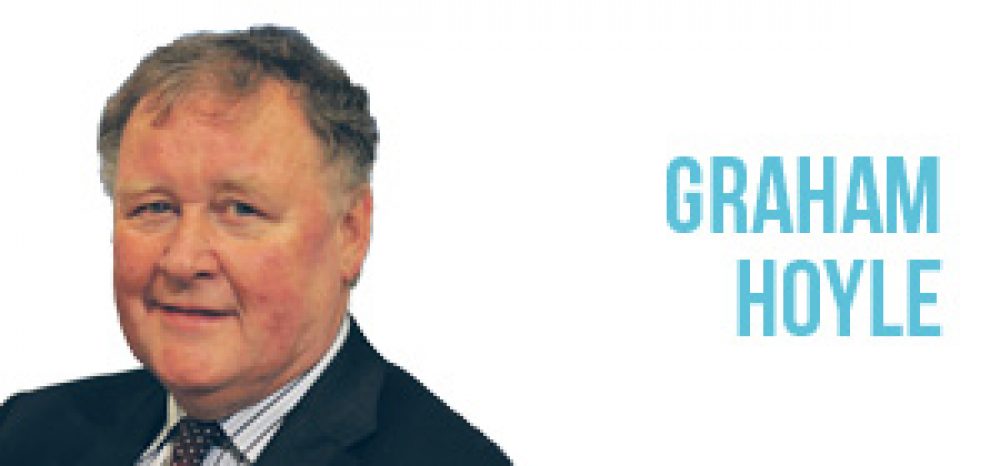No way, says Graham Hoyle. In its 10 years, the AELP has worked hard for smaller providers . . .after all, 40 per cent of its members have agency contract values of less than £1m.
Peter Cobrin was certainly right to say that smaller independent training providers should be represented at the top table when it comes to policymaking for FE and skills (Training providers exploited and undervalued, FE Week, October 22). But, the reality is that they are already.
Subcontracting, the focus of last week’s Ofsted report on apprenticeships, was high up on the agenda of the Association of Employment and Learning Providers’ (AELP) autumn conference. Delegates heard the forthright views of Roger Lynch of Robust Training on unjustifiable management fees in London — opinions that he, as an AELP board member, expressed to the funding agency heads only the day before.
There is no review on subcontracting, so AELP and the Association of Colleges (AoC) instead are working together to draw up a set of standards that reflect best practice under a common accord.
Greater transparency on management fees will form a key part of the new arrangements.
The Skills Funding Agency (SFA) has agreed in principle to back the accord to tackle prime contractors who choose to ignore the standards.
I recognise that despite our modest membership fees, a significant proportion of SFA contractors are not AELP members.”
Half the AELP board is made up of founders and heads of smaller providers. They’re entrepreneurs – and they’re vocal.
Forty per cent of AELP’s 600 members have agency contract values of less than £1m and a third of our membership comes from the voluntary sector.
Through our board members and the chairs of our special interest groups, they have regular contact with ministers, senior civil servants, agency heads and other officials.
In its 10 years, AELP has been determined to represent the interests of independent providers of all sizes, and indeed has spoken for the work-based learning interests of our college members.
Since 2002, it has continuously lobbied for growth in the programme and for funding rates that make provision viable for providers, large and small.
One of the reasons the funding rates for 2013/14 are not yet ready for publication is because AELP funding expert Stewart Segal and our member representatives have been negotiating firmly, but constructively, with their SFA/National Apprenticeship Service counterparts on a fair deal for both providers and the taxpayer.
AELP also has batted well for smaller providers in the opening up of the Education Funding Agency’s (EFA) market for NEET provision.
More providers are securing direct contracts with the EFA and, even more importantly for the young people who they support, providers are now able to offer more flexible provision that can lead to a full apprenticeship. Regular meetings with senior Department for Education and EFA officials are shifting the department away from its traditional mindset of seeing higher education as the only destination of worth.
I recognise that despite our modest membership fees, a significant proportion of SFA contractors are not AELP members.
This means that many providers will not be aware of what AELP is doing on their behalf because they are not receiving Countdown, our weekly newsletter.
But as well as offering comment to the sector press, we are increasingly using other channels of communication including Twitter and Linkedin to promote key policy messages.
Our conferences and events are also open to members and non-members, providing an excellent opportunity to hear policy updates and to feed directly any concerns from the frontline deliverers.
Providers of all sizes are well represented by AELP. . . and here’s one piece of advice that I can offer to non-members too. No matter how strong your representation is at the top table, if the quality of your provision is not good enough, then the days of it being protected by government funding are numbered.
And that’s the way it should be.
Graham Hoyle OBE is chief executive of the Association of Employment and Learning Providers.



Apprenticeships 4 England now has 8000 members on its LinkedIn forum, and 900 members on its sub group for funding and 600 members on its employability forum. If anyone wishes to know the views of sfa contractors and of training providers who do not hold direct sfa contracts, join the group on
http://www.linkedin.com/groups?gid=3721961&trk=hb_side_
As Graham has said in the article: we are increasingly using other channels of communication including Twitter and Linkedin to promote key policy messages:
Pleased to post countdown the AELP weekly newsletter on the APP4England LinkedIn group and so help facilitate increasing and widescale communication of both individuals and organisational concerns and ideas for addressing the same. Helping I hope to ensure that many more people become aware of what you are doing at AELP.
Lindsay McCurdy
Apprenticeships 4 England
Always happy to have Graham agreeing with me!! Might I suggest that a robust recruitment campaign to smaller training providers offering an initial free period of membership of say 12 months would enable AELP to demonstrate its undoubted value to training providers. It might also be useful if it were to offer a mediation service for members enabling it to resolve issues such as those that were revealed in FE Week’s article on DB Training and Harlow College